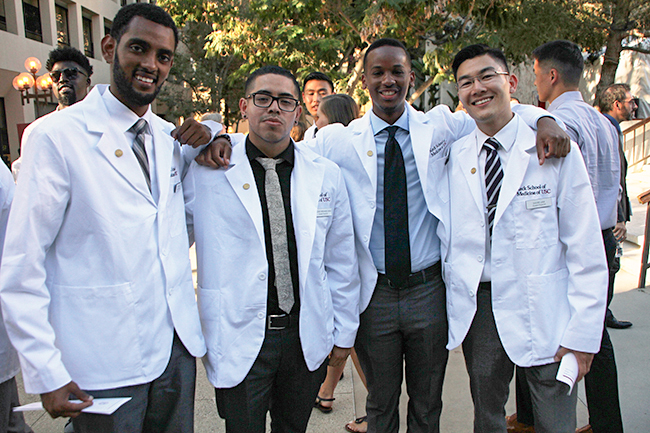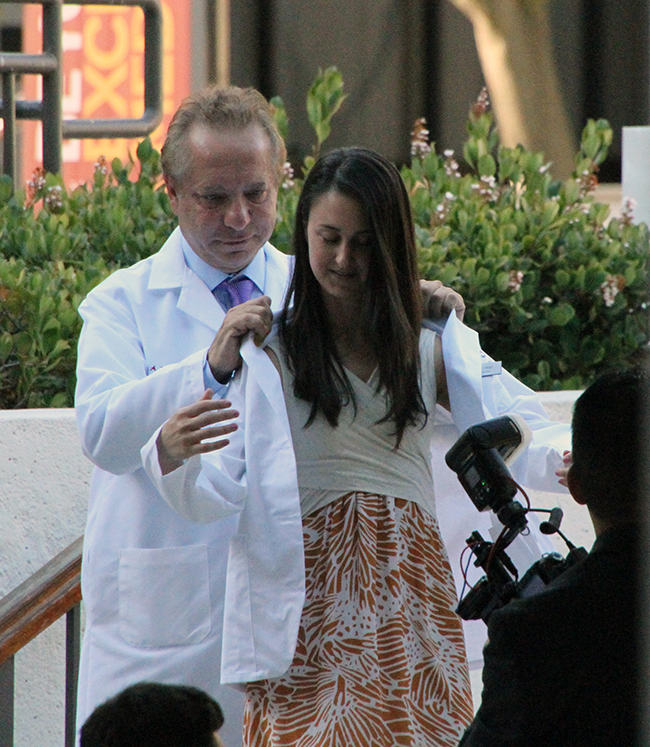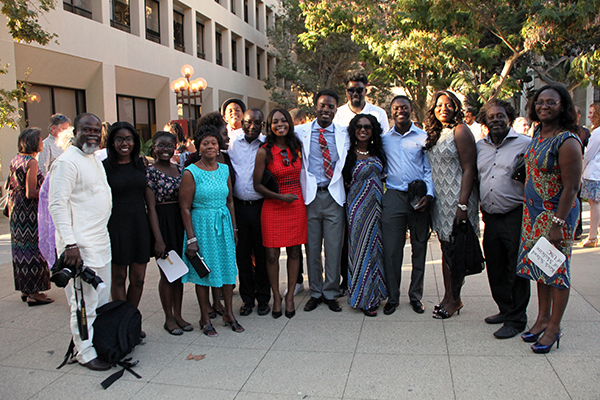In an annual ritual that is both celebratory and serious, 187 new students at the Keck School of Medicine of USC received their white coats, symbolizing entrance into the medical profession.
They were part of a ritual that is duplicated at other USC medical-related schools, including Pharmacy and Dentistry, and at more than 100 other medical institutions in the United States.
The Keck School of Medicine of USC students were officially welcomed by Dean Carmen A. Puliafito, MD, MBA, who noted that their achievements as undergraduates landed them spots at one of the elite medical schools in the United States.
Quoting Sir William Osler, a Canadian physician and one of the four founding professors of Johns Hopkins Hospital, Puliafito said: “The practice of medicine is an art, not a trade; a calling, not a business; a calling in which your heart will be exercised equally with your head.”
Puliafito’s remarks set the tone Aug. 14 on a hot afternoon on the Health Sciences Campus, where speakers reminded the students that practicing medicine requires a mix of deep scientific knowledge and deep compassion for people.
Henri Ford, MD, MHA, vice dean for medical education at the Keck School, pointed out that first-year students sometimes struggle to make a difficult diagnosis or create the best treatment plan, but that doesn’t mean they can’t help their patients.
“Your presence, your sensitivity, your caring attitude, your willingness to listen to them may have profound effects on their emotional well-being,” Ford said. “Yes, you can make a difference even now.”
This year’s keynote speaker was Peter Crookes, MD, associate professor of surgery and recipient of the 2015 Leonard Tow Humanism in Medicine Award. Crookes echoed the theme, emphasizing that top medical practitioners combine sophisticated science with a genuine concern for others.
Students’ time in medical school will focus on learning about the scientific discoveries and technological advances that are revolutionizing 21st century medicine, Crookes said, adding that it is just as important to remember the human side of medicine.
“Don’t lose the human aspect of reaching out to people in distress,” he said.
Cheers erupted as Puliafito and Ford cloaked the students in their coats — names emblazoned on the front — as each person was introduced to the crowd. Then the students recited the Hippocratic oath for the first time, swearing an allegiance to practice medicine with utmost integrity and with respect for the people they treat.
— Hope Hamashige





